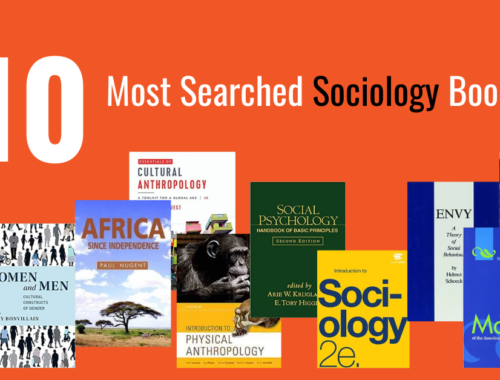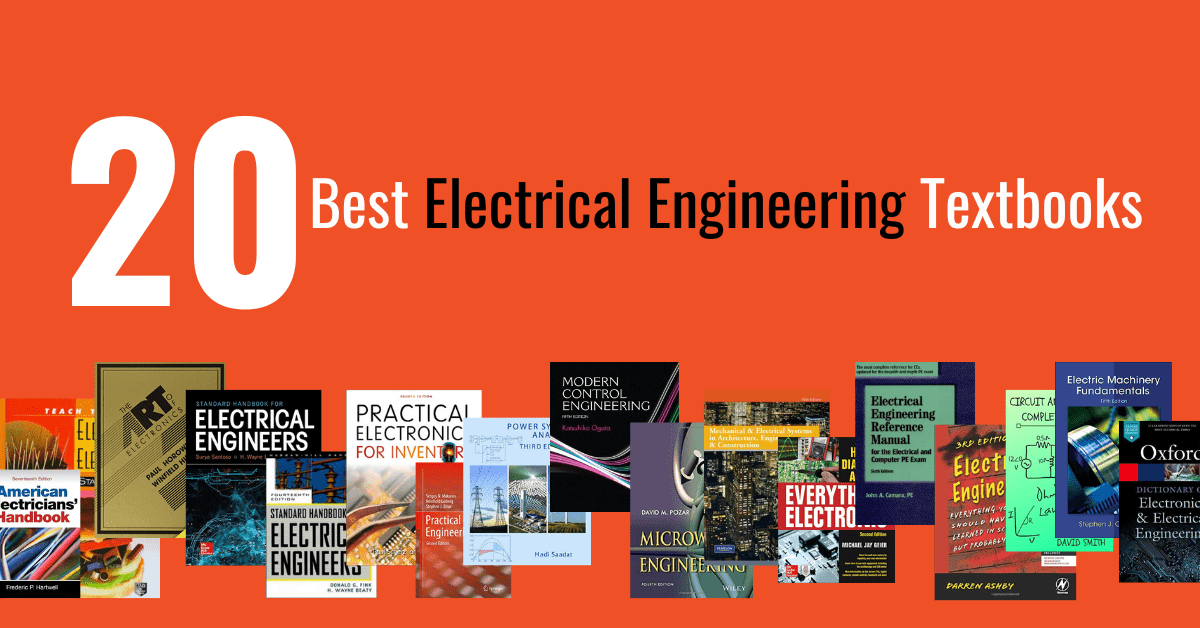
Electrical engineering isn’t an easy field to study, and you definitely don’t want textbooks that make it even more difficult to understand. Whether you’re working on electrical engineering in your undergraduate degree or simply want to learn more about it as a hobby, you’ll want a textbook that breaks down complicated concepts, gives you helpful examples and provides practice problems to help you master concepts.
But not every book on this list will have all those features. They each have their own strengths, so it’s up to you to decide which textbook is best for your learning goals. By the end of this article, you’re sure to have a couple of options that spark your attention.
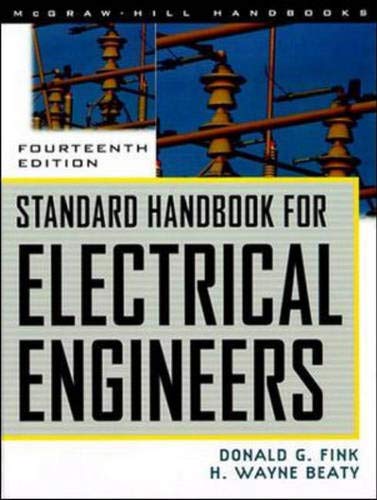 Standard Handbook for Electrical Engineers – 14th Edition
Standard Handbook for Electrical Engineers – 14th Edition
by Donald G. Fink, H. Wayne Beaty
To kick off our list, we have this handbook by professional electrical engineers Donald G. Fink and H. Wayne Beaty. This book is the end-all and be-all for electrical engineers, with insights from over 60 contributors. In this textbook, you’ll have plenty of detailed drawings, tables, and pictures of equipment. You’ll cover the most recent scientific achievements in electrical engineering along with basic electrical equipment, electrochemistry, wiring buildings, and more.
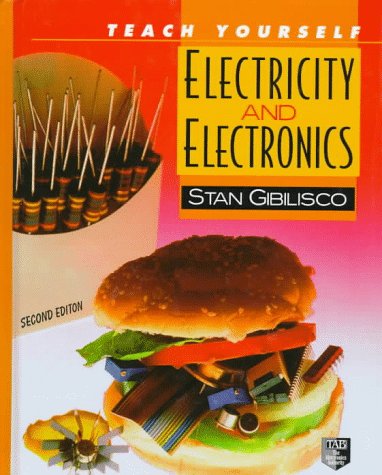 Teach Yourself Electricity and Electronics
Teach Yourself Electricity and Electronics
As the title indicates, you can use this textbook to start completely fresh in electrical engineering. This self-teaching tool allows you to build a foundation in electrical engineering with content on wireless communications, computers, and the Internet. There are plenty of self-tests to make sure you’re retaining all that new information along with detailed pictures to supplement concepts.
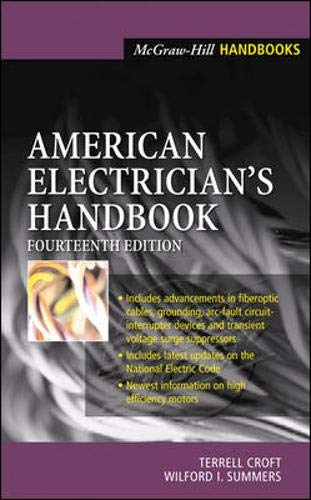 American Electricians’ Handbook – 14th Edition
American Electricians’ Handbook – 14th Edition
by Terrell Croft, Wilford Summers
There’s a reason McGraw-Hill dominates the textbook publishing market. They continue to produce quality work with American Electricians’ Handbook. This particular handbook has been around for over a century, and its content has evolved as new developments have been made in electrical systems. In this edition, you’ll learn about the latest updates on National Electrical Code, high-efficiency motors, and how to install and operate electrical equipment.
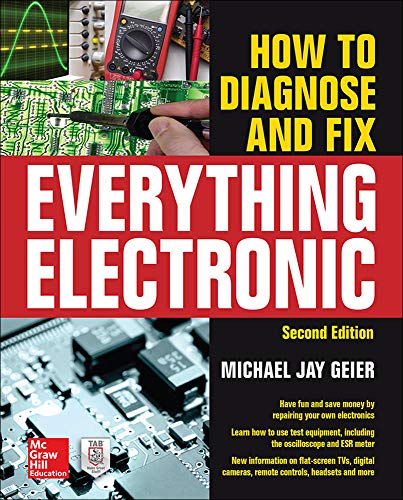 How to Diagnose and Fix Everything Electronic – 2nd Edition
How to Diagnose and Fix Everything Electronic – 2nd Edition
This textbook is all about electronic troubleshooting and repair. You’ll get step-by-step instructions on how to fix everything electronic from professionals in the field with a lifetime of experience. By the end of this book, you’ll know what tools you need to fix TVs, laptops, phones, cameras, and any other electronic device you can think of. You’ll also learn how electrical components work, how to analyze circuits, and how to read diagrams of equipment.
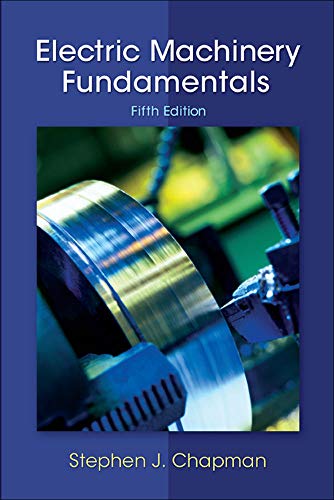 Electric Machinery Fundamentals
Electric Machinery Fundamentals
Here we have a classic example of a well-written textbook that examples complex concepts in a way you can actually understand. Reviews show that the diagrams and lots of examples help you not only understand concepts but master them. You’ll also have plenty of opportunities to self-test with practice problems.
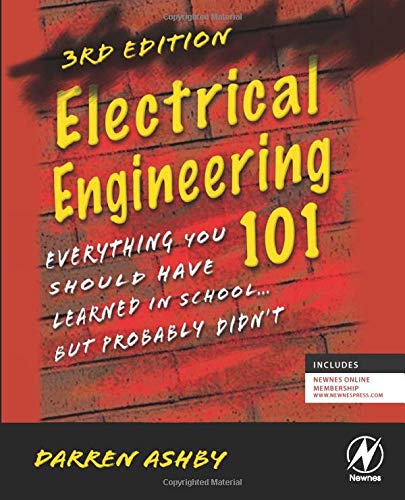 Electrical Engineering 101: Everything You Should Have Learned in School…but Probably Didn’t
Electrical Engineering 101: Everything You Should Have Learned in School…but Probably Didn’t
With its quirky title, you can imagine that the content of this book will be a bit different than other textbooks on this list. You’ll still be covering the fundamental principles of electrical engineering, but it’ll be more of a real-world approach with plenty of examples. You’ll cover microcontrollers, high-speed design, and much more.
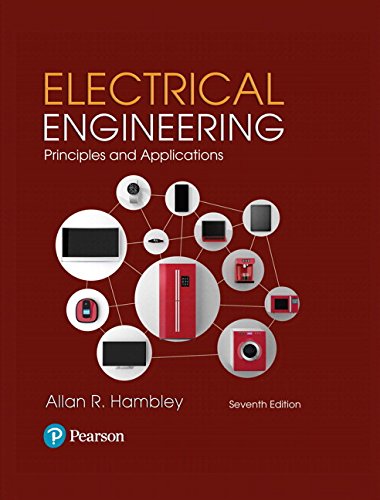 Electrical Engineering: Principles & Applications – 7th Edition
Electrical Engineering: Principles & Applications – 7th Edition
While this isn’t a textbook for true beginners, it’s great for those with a foundation in physics and single-variable calculus. It surveys circuits, digital systems, electronics, and electromechanics. You’ll have self-paced tutorials and practice problems to help work through harder topics.
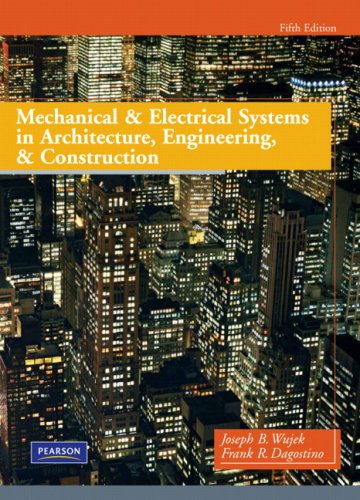 Mechanical and Electrical Systems in Architecture, Engineering and Construction
Mechanical and Electrical Systems in Architecture, Engineering and Construction
by Frank Dagostino, Joseph Wujek
If you need an introductory book on mechanical and electrical systems, you’re in luck. This textbook has hundreds of illustrations and photos to show architectural engineering. You’ll see plumbing, telecommunications, fire protection, and related topics throughout the book.
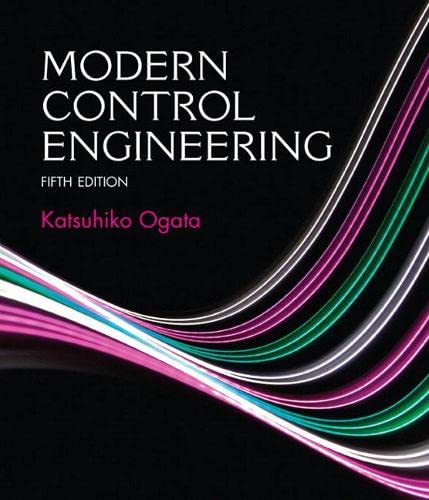 Modern Control Engineering
Modern Control Engineering
This senior-level textbook isn’t for newbies to the field, but it does give a great introduction to classical and modern control theory. You’ll also use MATLAB to solve computational problems and work through examples.
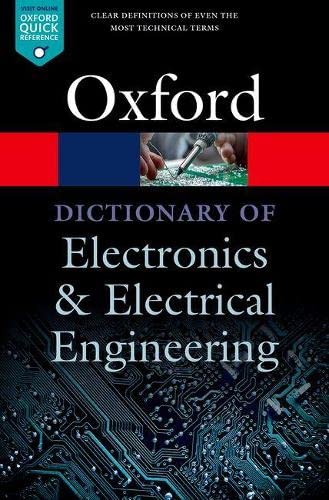 A Dictionary of Electronics and Electrical Engineering
A Dictionary of Electronics and Electrical Engineering
by Andrew Butterfield, John Szymanski
There are over 5,000 terms in this dictionary for electrical engineering. You’ll find key terms and theories for topics like circuits, magnetic devices, signal processing, and any other topic you can think of.
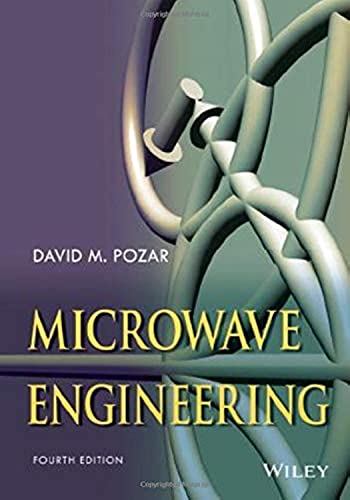 Microwave Engineering
Microwave Engineering
Students and electrical engineers alike rave about this textbook. The concepts are clearly laid out and thoroughly cover the subject with sections on directional couplers, radiometry, ferrite devices, and much more. You’ll learn the theory and practical importance of microwave engineering.
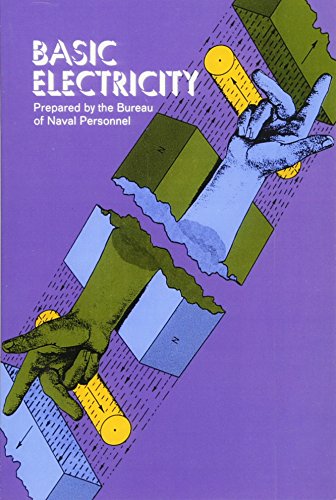 Basic Electricity
Basic Electricity
Our next textbook is actually a revised U.S. Navy training course. In 21 chapters, you’ll learn about electricity, batteries, electromagnetism, and many more electrical theories. The content is clear enough to learn at home or at school.
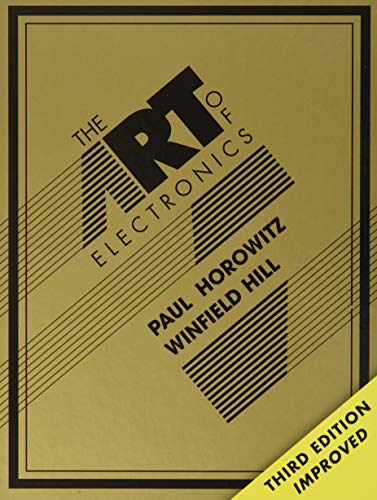 The Art of Electronics
The Art of Electronics
by Paul Horowitz, Winfield Hill
The Art of Electronics has many positive reviews for its practical advice that’s not so heavy on the math. You can use this book as a reference if you’re a student or a professional because it’s the “gold standard” for electrical engineering.
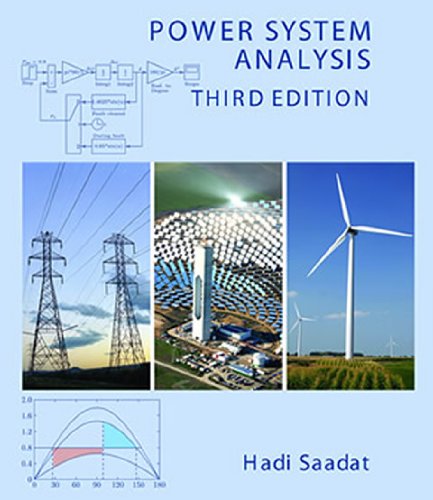 Power System Analysis
Power System Analysis
If you’re looking for a quality book on power systems, you’re in the right place. This edition is revised to include energy sources and their environmental impact on top of the fundamentals of power system analysis.
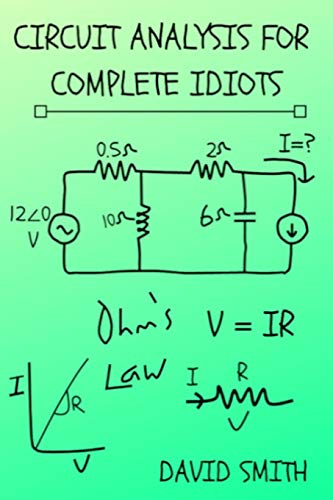 Circuit Analysis for Complete Idiots
Circuit Analysis for Complete Idiots
This isn’t another dry textbook on electrical engineering. No, this book takes a conversational approach to circuit theory to break it down as simply as possible. You’’ get the basics of theorems and formulas with plenty of exercises to give you practice.
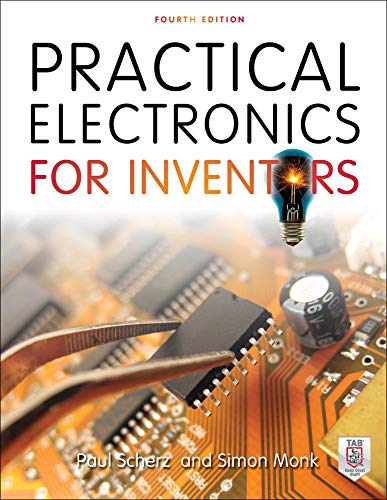 Practical Electronics for Inventors – 4th Edition
Practical Electronics for Inventors – 4th Edition
Through the expertise of its authors, this textbook lays out step-by-step instructions and illustrations to help you learn about voltage regulators, power supplies, semiconductors, and everything electrical. You start out with basic components and work your way up to advanced ones.
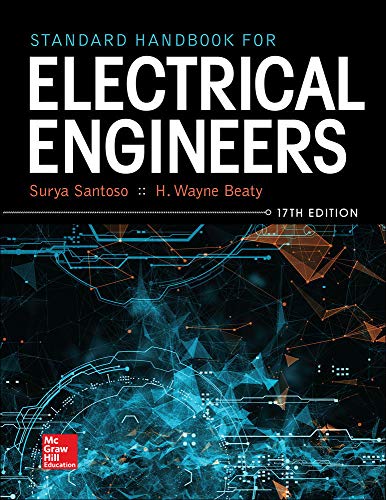 Standard Handbook for Electrical Engineers- 17th Edition
Standard Handbook for Electrical Engineers- 17th Edition
by Surya Santoso, H. Wayne Beaty
This next textbook is described as a “must-have” for everyone in electrical engineering. The language is easy to understand, and you’ll cover everything from the basics of electric power engineering to advanced topics.
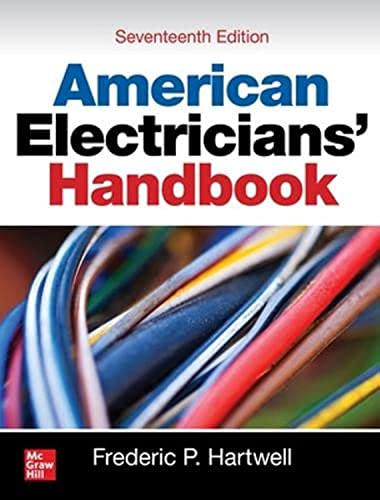 American Electricians’ Handbook- 17th Edition
American Electricians’ Handbook- 17th Edition
In this handbook, you’ll get clear and concise explanations along with many illustrations to supplement. Topics covered include interior wiring, transformers, splicing conductors, and other fundamentals.
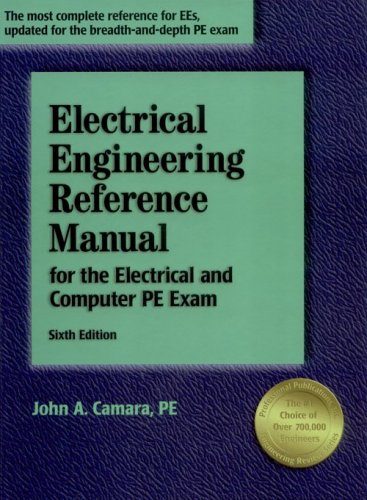 Electrical Engineering Reference Manual for the Electrical and Computer PE Exam- 6th Edition
Electrical Engineering Reference Manual for the Electrical and Computer PE Exam- 6th Edition
This option is specifically for those of you looking to complete the PE exam. In this textbook, you’ll cover all topics on the exam and practice with over 300 example problems to illustrate key concepts.
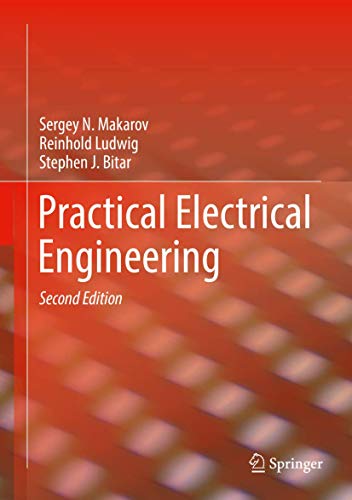 Practical Electrical Engineering
Practical Electrical Engineering
by Sergey N. Makarov Reinhold Ludwig, Stephen J. Bitar
Looking for in-depth coverage of electrical and computer engineering? This is the textbook for you. You’ll gain all the tools your need to understand circuits and systems so you can work in robotics, mechanical, civil, or industrial engineering.
Conclusion
Each book on this list has its strengths and weaknesses. Some prepare you for an exam, some for a class, and others for a profession. Whatever book is the best fit for you, check it out on BookScouter to get the best price out there.




